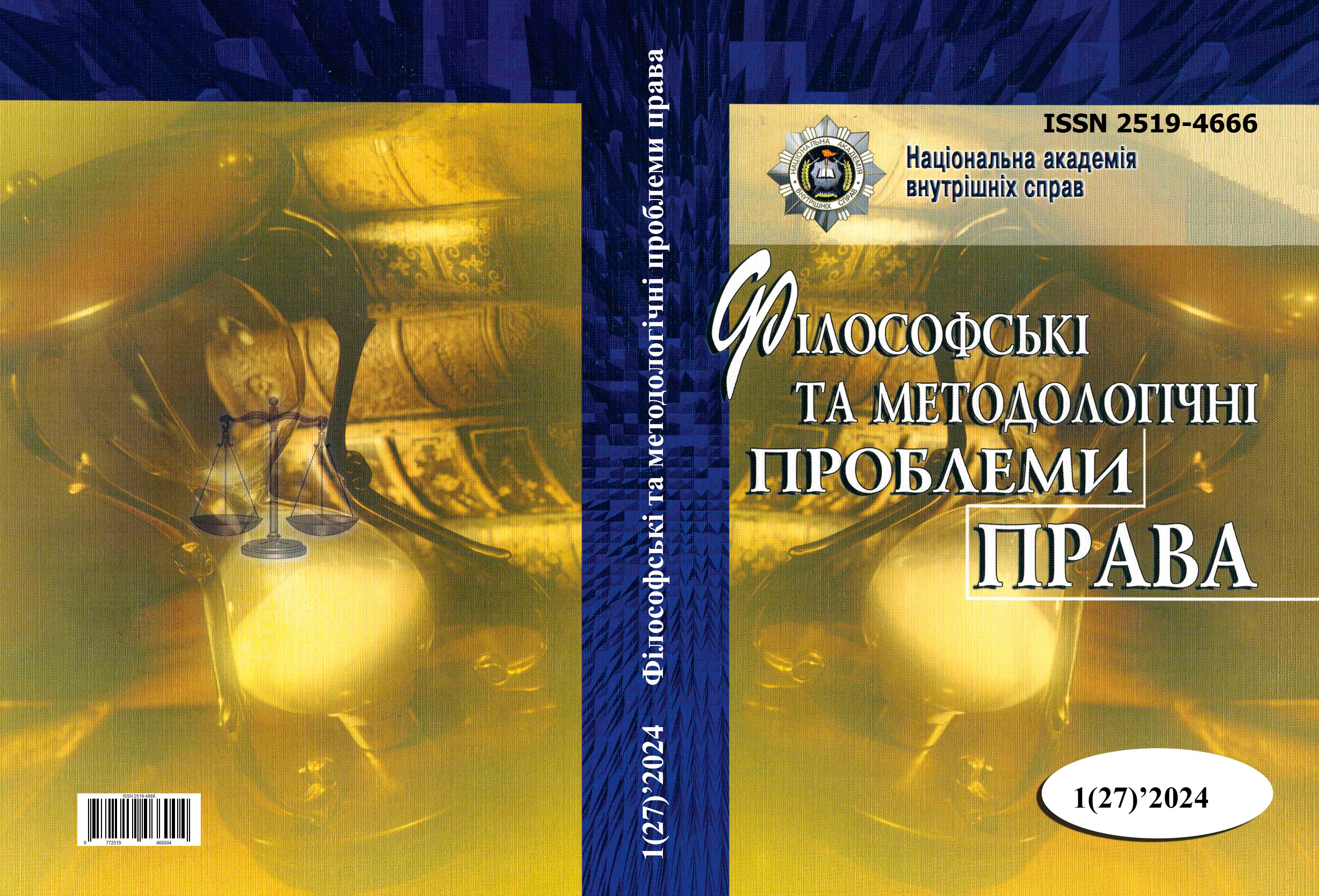Law Enforcement Activity, Globalization and Social Morality in Frameworks of Mass Culture (On the Example of Modern European TV-Shows on Law-Enforcements. Part 1)
Abstract
Abstract. The article discloses the organic interrelationship of globalization processes, mass culture phenomena, social morality, and the peculiarities of law enforcement activities through mass culture, in TV series. The author outlines a wide range of questions devoted to the interaction of various spheres of a person's spiritual life (social morality, law, law enforcement, art), which has great variability, is represented by a wide palette of subject forms, reflects the current social reality and at the same time constructs it. Cultural and semiotic methodological approaches assisted in carrying out an analysis of modern series on law enforcement officers to find in them the transmission of the main moral values of Western European society, which include humanism, equality, tolerance, and inclusion. Special attention is paid to analyzing the sociocultural context within which modern mass culture exists (globalization, the spread of democracy, unification and standardization of life, compression of time, significant information flow, clip type of thinking, etc.). The article shows that the spread of mass culture is due to the development of technologies and a change in the type of communication: from verbal-written to audiovisual (which only confirms the fundamental importance of sight and visual metaphor within European culture). The article focuses on the fact that modern series about the work of law enforcement officers reflect the realities of modern Western European society, which overcomes the fear of the other with the help of the affirmation of moral values and their legal support; recognizes equality both in the field of opportunities and in the field of responsibility; forms and approves new gender and social models of behavior, keeping the values of individualism and person-centeredness effective; recognizes the special role of civil society institutions in monitoring the activities of state bodies, including law enforcement. Due to the rapid development of technologies and accessibility, the series as a screen form performs an informative function, introducing the viewer to basic social, moral, and legal values.
Keywords: law enforcement; morality; moral values; democracy; globalization; police; law enforcement officer; human rights; tolerance; gender; law; mass culture; series; civil society.
Downloads
References
Bezuhla, R.I. (2010). Mass culture: to the problem of defining the concept. Culture and art in the modern world, 11, 25-34.
Eco, U. (1972). Towards a Semiotic Inquiry into the Television Message. Working Papers in Cultural Studies, 2, 103-121.
Ensuring law and order and fostering integrity. (n.d.). Retrieved from https://securitysectorintegrity.com/uk/%d1%96%d0%bd%d1%81%d1%82%d0%b8%d1%82%d1%83%d1%82%d0%b8-%d1%82%d0%b0-%d0%be%d1%80%d0%b3%d0%b0%d0%bd%d1%96% d0%b7%d0%b0%d1%86%d1%96%d1%97/%d0%b7%d0%b0%d0%b1%d0%b5%d0%b7%d0%bf%d0%b5%d1%87%d0%b5%d0%bd%d0%bd%d1%8f-%d0%bf%d1%80%d0%b0%d0%b2%d0%be %d0%bf%d0%be%d1%80%d1%8f%d0%b4%d0%ba%d1%83-%d1%82%d0%b0-%d0%b2%d0%b8%d1%85%d0%be%d0%b2%d0%b0.
Hesmondhalgh, D. (2019). The Cultural Industries. London and Los Angeles: Sage.
Horina, Zh. (2019). Transformation of mass culture in modern media texts. Bulletin of Odessa National University, 24(1(19), 14-20.
Kononenko, O.V. (2013). Mass culture in the postmodern discourse. Bulletin of the National Aviation University, 1, 144-148.
Kopcha, V.V. (2020). The human rights function of the states of Central Europe: theoretical and comparative legal aspects. Kherson: Helvetyka.
Krypchuk, M.V. (2011). Problems of creating a mass theatrical spectacle (principles of artistic design). Scientific notes of Ternopil National Pedagogical University named after Volodymyr Hnatyuk, 2, 163-168.
Kyrychenko, A.O. (2021). The show as a mass culture phenomenon: essential features and functions. Issues of cultural studies, 38, 109-119. doi: 10.31866/2410-1311.38.2021.245783.
Liutyi, T. (2019). Mass and popular culture: the problem of demarcation. Scientific notes of NaUKMA, 3, 85-99. doi: 10.18523/2617-1678.2019.3.85-99.
Luman, N. (2010). The reality of mass media. V. Ivanov, M. Minakov (Ed.). Kyiv: TsVP. Retrieved from https://www.aup.com.ua/uploads/luman_web.pdf.
Mass culture. Site " Encyclopedia of modern Ukraine". Retrieved from https://esu.com.ua/article-51462.
Melnyk, I.V. (2020). Mechanisms of state regulation of informational and mass cultural influences on value orientations of society in the context of hybrid warfare. Scholarly notes of V.I. Vernadsky Tavri National University, 31(70), 4, 76-80. doi: 10.32838/TNU-2663-6468/2020.4/12.
Melnyk, M., & Fisher, V. (2021). Artistic and aesthetic aspects of innovative technologies in show direction. Current issues of humanitarian sciences, 39(2), 48-52. doi: 10.24919/2308-4863/39-2-8.
On guard of the law: 25 serials about policemen. (n.d.). Retrieved from https://kinohata.com.ua/seriali-pro-politsiyu.
Pocheptsov, H. (2014). Reprogramming behavior using a television series as a media communication option. Retrieved from https://ms.detector.media/manipulyatsii/post/11656/2014-10-27-pereprogrammyrovanye-povedenyya-s-pomoshchyu-teleseryala-kak-varyanta-medykommunykatsyy.
Pocheptsov, H. (2014). Serials as media communications. Retrieved from https://ms.detector.media/ manipulyatsii/post/11959/2014-11-30-teleseryaly-kak-medyakommunykatsyy.
Ranisch, R., & Sorgner, S.L. (2015). Introducing Post - and Transhumanism. Frankfurt am Main:
Peter Lang.
Venher, O., & Kotskyi, M. (2023). Artistic and technical means of realizing the director’s idea in the modern film industry. Bulletin of the Kyiv National University of Culture and Arts, 6(1), 83-91. doi: 10.31866/2617-2674.6.1.2023.279247.
Vovk, V. M. (2024). Morality, democracy, globalization and law. Analytical and comparative jurisprudence. Analytical and comparative jurisprudence, 1, 23-26. doi: 10.24144/2788-6018.2024.01.2.
Abstract views: 62 PDF Downloads: 68
Copyright (c) 2024 Philosophical and Methodological Problems of Law

This work is licensed under a Creative Commons Attribution-NonCommercial-NoDerivatives 4.0 International License.
- Authors reserve the right to authorship of their own work and transfer to the magazine the right of the first publication of this work under the terms of the Creative Commons Attribution License, which allows other persons to freely distribute published work with mandatory reference to authors of the original work and the first publication of an article in this magazine.
- Authors have the right to enter into separate additional agreements on non-exclusive dissemination of the work in the form in which it was published in the journal (for example, to post an article in the institution's repository or to publish as part of a monograph), provided that the link to the first publication of the work in this journal is maintained.
- The journal's policy allows and encourages the posting of articles by authors on the Internet (for example, in electronic storehouses of institutions or on personal websites), both before the submission of this manuscript to the editorial office and during its editorial processing, as this contributes to the creation of a productive scientific discussion and positively affects the efficiency and dynamics of citing the published work.




